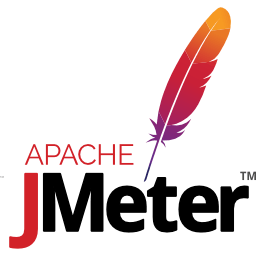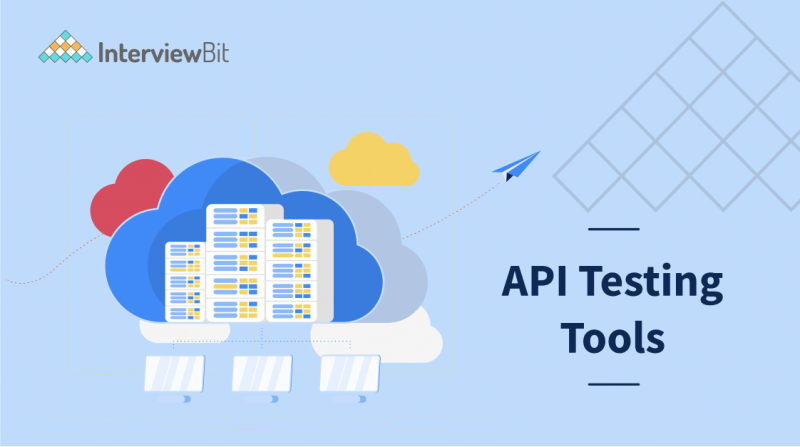API testing has become absolutely vital with the rise of cloud applications and interconnected platforms. Many of the services we use daily rely on multiple interconnected APIs, so even if just one of them is malfunctioning, then the entire service is at risk. In order to ensure that APIs perform as expected, it has become essential for software developers to perform API tests.
The API testing tools available today can be overwhelming, so how do you decide which one is the best? Don’t worry, we’ve compiled a list of the best API testing tools that will expedite your work. Let’s recap the basics of API testing before we check out the top 15 API testing tools in 2023.
- What is API?
- What is API Testing?
- Top API Testing Tools
- 1. Katalon Studio
- 2. Postman
- 3. SoapUI
- 4. Tricentis Tosca
- 5. Apigee
- 6. jMeter
- 7. Rest-Assured
- 8. Assertible
- 9. Karate DSL
- 10. Swagger
- 11. ACCELQ
- 12. ReadyAPI
- 13. Airborne
- 14. Ping-API
- 15. Pyresttest
- Conclusion
- FAQs
- Q.1: Which is the best tool for API testing?
- Q.2: What is the Postman tool for API testing?
- Q.3: Is API testing in demand?
- Q.4: Does API testing require Coding?
- Additional Resources
What is API?
An API stands for Application Programming Interface, which is a piece of programming code that facilitates smooth communication (transmission of data) between two software applications. In simple words, APIs are software bridgings that help two applications communicate with one another. The platform enables simple and secure data exchange between applications thereby simplifying software development and innovation.
Confused about your next job?
By providing them with the necessary tools and functions, an API allows two programs or applications to communicate with each other. Upon receiving the request from the user, it drives it to the service provider who will generate a result, and it will send back the result to the user.
Features of API
- An API serves as a middleman and facilitates the exchange of data between two different applications.
- An API aids in embedding content more quickly from any site or application.
- Using it, a company or user can customize the content and services they use most frequently.
- APIs anticipate future changes (updates) in the software.
- APIs are simple, flexible, and easy to use.
- It provides great developer support.
APIs that do not work efficiently and effectively can never be adopted, no matter whether they are free to use or not. Therefore, it is essential to test APIs as API testing greatly improves the effectiveness of a testing strategy as a whole, resulting in faster software development.
What is API Testing?
In API (Application Programming Interface) testing, APIs are tested directly to determine whether or not the API developed meets certain requirements in terms of functionality, performance, security, and reliability of the application. Essentially, API testing identifies bugs, inconsistencies, or deviations from an API’s expected behaviour.
Unlike GUI (Graphical User Interface) tests, API tests don’t focus on the look and feel of an application but are primarily focused on the Business logic layer of the software architecture.

Having a product that matches expectations is important to software companies. In that regard, API testing is crucial for integration testing since it helps determine if the business logic is followed correctly. As API testing is a complex subject, we cannot test it manually, and instead, we need some API testing tools. In light of this, you ought to use the best API testing tools available.
Top API Testing Tools
Below are a few of the most popular API testing tools –
1. Katalon Studio
Katalon Studio is a free tool that can be used to automate tests for web services, applications, and mobile apps. It is quickly gaining popularity as the go-to tool for API/Web services testing because it provides a comprehensive solution that developers and testers need. It contains all frameworks, ALM integrations, and plugins in a single package, which makes deployment simple. It offers an API testing platform that is hassle-free for anyone.
Features
- In addition to SOAP (Simple Object Access Protocol) and REST (Representational State Transfer) requests, it also supports the commands and parameterizes functions.
- It provides the ability to integrate UI and API/Web services across various platforms, including Windows, Mac OS, and Linux.
- Provide support for AssertJ, one of the most powerful assertion libraries, so that you can create fluent assertions in a BDD style.
- Both automated and exploratory testing can be done with this.
- The data-driven approach is supported.
2. Postman
Originally a Google Chrome plug-in, Postman has grown into one of the top API testing tools. With its main objective being the testing of API services, it has expanded its services to include native versions of Windows and Mac. Either way, it’s a great option for exploratory or manual testing. Postman enables you to monitor APIs, automate tests, debug, and run requests. Features are abundant, it’s free, and it’s rated highly by users.

Feature highlights:
- Postman allows the writing of Boolean tests and does not require the use of a command line.
- You can extract API data using Postman’s interface.
- This platform consists of built-in tools that give you the ability to interact with an API, collections that let you automate tests, debug, monitor API, run requests, and workspaces that enable you to collaborate.
- Swagger and RAML (RESTful API Modeling Language) formats are supported for designing APIs.
- An easy-to-use REST client.
3. SoapUI
SoapUI is a functional testing tool that is the world’s leading solution for SOAP and REST testing. In essence, it works as a headless API testing tool. You can quickly and easily create and execute automated functional, regression, and load tests with SoapUI’s user-friendly graphical interface and enterprise-class features. Several protocols and technologies are supported by SOAPUI to test all types of APIs. The SOAPUI interface is intuitive, so technical users and non-techies alike can use it seamlessly.

Feature highlights:
- With its point-and-click and drag-and-drop functionality, it simplifies complex tasks (such as working with JSON and XML) and rapidly creates tests.
- Simulate how consumers interact with your APIs by loading data from Excel, files, and databases.
- The user can access the complete source code of SoapUI via the free package
- Effective data-driven testing since it loads data from databases, excel, and files to simulate users’ interaction with the APIs.
- SoapUI supports Data-driven testing
- It supports REST (Representational State Transfer), SOAP (Simple Object Access Protocol), JMS (Java Messaging Protocol), JDBC (Java Database Connectivity), and many other protocols.
4. Tricentis Tosca
Bringing continuous testing into Agile and DevOps is made easy with Tricentis Tosca. It is a software testing tool that supports HTTP (Hypertext Transfer Protocol), AMQP (Advanced Message Queuing Protocol), SOAP (Simple Object Access Protocol), and many other protocols. In this approach, multiple aspects of software testing are incorporated (test case design, automation, data generation, and analytics) to analyze GUIs and APIs from a business perspective. It provides all-inclusive functionality of test cases to ensure an effective test management process. It enables no-code, script-less end-to-end automation of your tests.

Feature highlights:
- It maximizes reuse and simplifies scrip maintenance with model-based test automation
- Provides end-to-end testing by allowing API tests to be run across mobile, cross-browser, and packaged apps.
- Ensures regression tests are completed quickly and efficiently.
- By using this tool, test managers can perform manual testing without needing to set up Tosca environments.
- Allows for sustainable automation through the use of new technology
5. Apigee
Apigee is a cross-cloud API tool offered by Google to develop and manage APIs. Apigee enables its users to access its features using other editors like Swagger. Through Swagger, users can measure, test, build, and support APIs. Additionally, it added features such as TLS (Transport Layer Security) security, Open API 3.0 support, virtual host management improvements, and more software support to give users even more flexibility when managing their APIs. The tool supports creating and configuring API packages, revenue models, reports, payment gateways, and integrations with developer portals.

Feature highlights:
- Track API traffic, error rates, and response times to identify performance problems.
- Enables the creation and deployment of API proxies in the cloud using the Open API Specification.
- On-premises (in a private cloud) or in the cloud, and sometimes a hybrid deployment model is used.
- There is a customizable developer portal as well as support for Node.js.
- Apigee can handle APIs with a lot of data.
6. jMeter
jMeter is an open-source tool by Apache for analyzing and testing the performance of software applications, products, and services. Initially designed to perform load testing, this tool is now popular for performing functional API tests. There is a wealth of API testing functionality, along with extra features to enhance the process. This tool can be used as a unit-test tool to test JDBC database connections. As of December 2020, JMeter version 5.4 was released, which provides bug fixes and core enhancements.

Feature highlights:
- By integrating JMeter with Jenkins, users can include API tests within CI pipelines.
- The tool is very flexible and allows testers to customize it according to their requirements.
- It can be used with both dynamic and static resources to test performance.
- Great for working with CSV files, and it allows teams to create unique parameter values for testing.
- It performs load and performance tests for a wide variety of server types.
7. Rest-Assured
You should consider Rest-assured if you’re planning to test RESTful services in Java. It is an open-source platform that offers Java domain-specific languages to make it easier to test REST services. JSON and XML-based applications are frequently tested with it.
Feature highlights:
- With its in-built functionalities, users don’t need to develop code from scratch.
- It offers several authentication methods to test and validate a secured API.
- It supports all HTTP methods, but it also explicitly supports several types of commands, such as POST, GET, PUT, DELETE, OPTIONS, and PATCH.
- Supports the seamless integration of the Serenity automation framework.
- It supports Given/When/Then test notation, which instantly makes your tests readable for humans.
8. Assertible
Assertible provides easy and reliable API uptime and performance monitoring. It continuously tests web services and emphasizes automation and reliability. In October 2019, Assertible announced Encrypted variables, a new feature that provides a new option for storing tokens, passwords, and secret fields necessary for API testing. For years, it has been recognized as an API tool that is reliable.
Feature highlights:
- From continuous integration to the delivery pipeline, Assertible supports the automation of API tests at every step.
- API tests can be executed after deployment as well.
- Integrations are possible with tools such as GitHub, Slack, and Zapier, etc.
- Support validation of HTTP responses with turn-key assertions including JSON Schema validation and JSON Path integrity checks.
- As a result of the Sync feature, users no longer have to manually update their tests after adding new parameters or changing the API response.
- Assertible makes API testing easy and efficient.
9. Karate DSL
Karate DSL is a unified framework for API automation testing, mocks, performance testing, and load testing. Test scenarios for API-based BDD have never been easy to create. Karate, on the other hand, has all the step definitions written for developers so we don’t have to worry about writing them. Developed by Intuit, this tool is specifically designed for automated API testing. Users do not need to possess programming skills in order to use this tool. However, having some basic knowledge of HTTP, JSON, XML, XPath, and JsonPath is an asset.

Feature highlights:
- Tests can be written in almost any language that deals with HTTP, JSON, or XML.
- Provides powerful assertion capabilities.
- There is support for configuration switching and staging as well as for parallel multi-threading execution.
- Testing and generating reports are supported in the same way as other Java projects.
- Users can reuse payload data and user-defined functions across tests with this tool.
- Programming skills are not required to use this tool.
10. Swagger
Swagger is a web-based API testing tool that lets users begin testing functionality, security, and performance right from the open API specification. Swagger tooling and the Ready API platform simplify the process of quickly creating, managing, and executing API tests. Swagger assists you with the entire API lifecycle.

Feature highlights:
- Swagger Inspector enables you to inspect API response requests and make sure they work as intended.
- Validate schema rules by importing the user’s API definitions.
- Generating assertions against endpoints and injecting synthetic data into parameters automatically.
- Generating complex load scenarios to analyze API performance.
- Support all types of services including REST, SOAP, and GraphQL.
11. ACCELQ
ACCELQ is a unique test automation offering that focuses on the design and maintenance aspects of the test automation life cycle. You’ll be pleasantly surprised by its intuitiveness and comprehensiveness when you try it. It’s a cloud-based continuous testing platform that provides a codeless approach to test automation. It provides test automation and test management capabilities for both API testing and functional testing.
Feature highlights:
- Automates API testing without requiring users to write a single line of code.
- In order to guarantee reliable test execution, ACCELQ adapts intelligently to unexpected changes in the application.
- Additionally, ACCELQ automatically generates test cases using AI (Artificial Intelligence).
- Ensure seamless integration between business processes and corresponding APIs.
12. ReadyAPI
Designed to streamline your testing workflows, ReadyAPI is a no-code API testing platform. With SmartBear’s ReadyAPI platform, you can test RESTful, SOAP, GraphQL, and other web services for functionality, security, and load. A few of the tools available with this intuitive platform include API functional testing, API performance testing, API security testing, and API & Web virtualization. By using this platform, you can guarantee the quality of all web services from end to end. It will be possible for you to design data-driven and comprehensive API tests as well.

Feature highlights:
- This tool can create bulk assertions against hundreds of APIs quickly with its Smart Assertion feature.
- Git, Jenkins, Docker, Azure, etc., are all natively supported by it.
- Command-line support for automated testing is available as well.
- There are parallel execution capabilities for functional tests, as well as for job queues.
- In addition, it offers features and functionalities that allow the functional tests to be reused and realistic load scenarios to be generated.
- ReadyAPI also allows you to remove dependencies during testing and development.
13. Airborne
The best API automation and programming tool used by testers for testing REST APIs is Airborne. It has a Ruby-based RSpec-driven framework for API automation testing. Airborne version 0.3.5 was released in July 2020 with minor bug fixes. Testing teams may use it to meet their requirements since it is a free and open-source tool. Also, it makes use of RestClient for handling HTTP requests.
Feature highlights:
- It is compatible with Rack applications.
- Airborne has no user interface. It uses a text file to create code since it is a programming framework and a rest API testing framework.
- To use Airborne, testers need to remember a few key toolset methods and some ruby and RSpec basics.
- It is compatible with APIs written in Rails (a framework for web application development written in Ruby).
14. Ping-API
A powerful API inspector, Ping-API lets you inspect the request and response data of any HTTP API call. Using Ping API is quick and easy. It allows for the creation of test cases using JavaScript or CoffeeScript, runs tests, and schedules tests as well. Failures are notified to the user via email or Slack.
Feature highlights:
- API Tests can be scheduled every minute.
- It is an automated tool for monitoring and testing APIs.
- Since it supports script writing, you can set request headers, body, and URL.
- Validates the CRUD (Create, Read, Update, and Delete) process.
15. Pyresttest
The Pyresttest tool is a Python-based tool used for testing RESTful APIs and is also a micro-benchmarking tool. It supports YAML or JSON configuration files for tests. Pyresttest is compatible with Mac and Linux with Python 2.6, 2.7, and 3.3.2 (with the future module installed). There are only a few dependencies (pycurl, pyyaml), making it easy to deploy on-server for smoke tests/health checks.
Feature highlights:
- It is easy to deploy because of its minimal dependencies, making it useful for smoke testing.
- Build full test scenarios by generating/extracting and validating mechanisms
- No coding skills are necessary since Pyresttest supports tests in JSON and YAML configuration files.
Conclusion
As software development teams become more technology-oriented, API testing has established a trend for automated testing. There will be more tools developed to meet these needs. In spite of the difficulty of finding a tool that can do everything, adopting a toolset that meets a company’s needs and boosts revenue is crucial. Think about how each API testing tool may be better suited for specific purposes and what features are a must for your software development workflows before selecting one. For instance,
- Is an open-source tool more suitable for your needs?
- Is the API testing tool easy to use?
- What about its ability to optimize workflow?
- Does it support technologies from the past, present, or future?
- Do you have software developers on your team?
- If so, does the tool support their preferred language?
- Does your team lack technical expertise?
- Are you interested in a zero-code approach?
- Would you like to utilize a collaborative tool?
Knowing the answers to such questions would enable you to select the best tool for your team and your organization. Overall, although each of the API testing tools mentioned in this article has a strong reputation for quality, the best API testing tool will depend on which best fits the needs of the organization or project.
FAQs
Q.1: Which is the best tool for API testing?
Ans: API testing tools such as Postman, Katalon Studio, SoapUI, and JMeter are some of the best. It is important to note that there is no “one-size-fits-all” tool. When you are evaluating testing options, always consider the benefits and drawbacks of each and your needs!
Q.2: What is the Postman tool for API testing?
Ans: Originally a Google Chrome plug-in, Postman has grown into one of the top API testing tools. With its main objective being the testing of API services, it has expanded its services to include native versions of Windows/Mac. There are built-in tools to interact with an API, collections to automate tests, debug, monitor APIs, and workspaces for collaboration. In either case, it’s a great option for exploratory or manual testing.
Q.3: Is API testing in demand?
Ans: APIs are essential to provide customers with an effective and connected experience, and as a result, businesses are starting to see their value. API testing has become increasingly important due to the growing complexity of the IT sector, as well as advances in software development technologies.
Q.4: Does API testing require Coding?
Ans: Automated testing is highly recommended for API testing, particularly when it comes to DevOps, agile development, and continuous delivery. Automated testing uses testing tools that require no coding, but manual testing requires coding to test the API. Automated API testing is preferred for better and faster results than manual API testing.







 Join WhatsApp Group
Join WhatsApp Group


